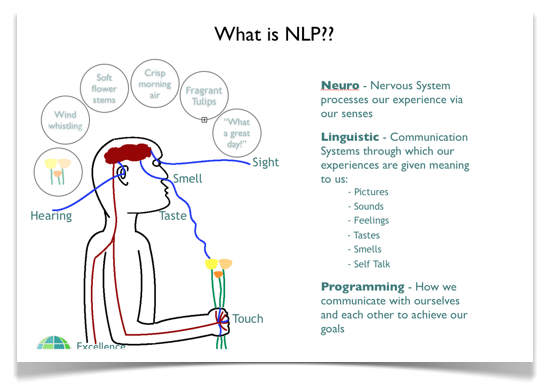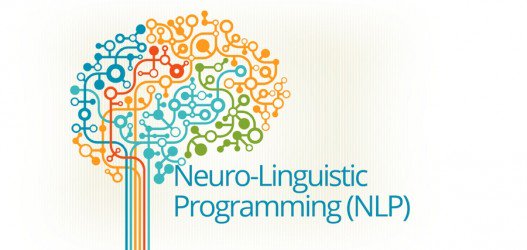

Imagine yourself standing in the square, filled with that emotion. Imagine a coloured square in front of you filled with the colour that you associate with that emotion. Take an emotion that you would like to feel, for example confidence. Questions like these naturally lead to a more positive outlook. What do I need to do more/less of in order to change?.What will life be like when I have changed?.With NLP the key is to ask the right questions, for example: So if you ask yourself ‘ Why do I feel so bad?’, your mind will find lots of answers and you will feel worse. The Power of Questionsīandler suggests that our minds actively look for answers to questions. It’s much easier to get motivated about a goal that really satisfies you. For example, you don’t actually want to buy your dream house, you want to live in it. You should also think about what it is that you really want. We’re all familiar with the principles of goal-setting, but NLP suggests some interesting new insights, focusing on satisfaction, not dissatisfaction.įor example, it’s helpful to make your goals positive focus on what you want to have, not what you’d like to lose or not have. Who said that to me? Might they have been wrong?.But you can also challenge limiting beliefs, and change whether you believe you can do something by asking yourself questions like: What this boils down to is that if you believe you can do something, you probably can. This ‘placebo effect’ is well-documented in clinical trials. Likewise, if you believe that you have been given something that will make you better, you often do get better. If you believe you’re ill and that you’re going to die, you probably will: witch doctors have been using this technique for centuries. What you believe can be extremely powerful.
#Neurolinguistics programs how to
Richard Bandler, Alessio Roberti and Owen Fitzpatrick, How to Take Charge of Your Life: The User’s Guide to NLP You can’t always control what happens, but you can always control how you deal with it Using mind techniques such as visualisation, you can change the way that you think and feel about past events, fears and even phobias. NLP shows you how you can take control of these beliefs and influences. Their causes can often be very complicated, involving, for instance, comments or beliefs from your parents or teachers, or events that you have experienced. Your thoughts, feelings and emotions are not things that are, or that you have, but things that you do. NLP works from the starting point that you may not control much in your life, but that you can always take control of what goes on in your head. Taking Control of Your Mind: The Principle Behind NLP One of the most helpful as a basic introduction is probably: How to Take Charge of Your Life: The User’s Guide to NLP, by Richard Bandler, Alessio Roberti and Owen Fitzpatrick.

Richard Bandler has written many books about NLP. He worked closely with a very successful therapist called Virginia Satir, and NLP was born from the techniques that really worked with patients and others. Since its inception in 1965, the program has achieved a reputation for excellence in doctoral program, and has graduated many individuals who have assumed positions of leadership and have contributed significantly to the advancement of knowledge in the processes and disorders of human communication.NLP was co-created by Richard Bandler, who noticed that conventional psychotherapy techniques didn’t always work and was interested in trying different ways. One common theme across projects and laboratories is bilingualism and cross-linguistic studies across the lifespan in typical and clinical populations.

#Neurolinguistics programs professional
We offer our students a strong and multifaceted research-based doctoral education where they will gain the knowledge, skills, and attitudes to continue learning and growing throughout their professional lives.įaculty members from CUNY’s senior colleges and the Graduate Center conduct research on varied aspects of speech, language, and hearing processes and disorders. Program in Speech-Language-Hearing Sciences prepares scholars and researchers with a capacity to develop broad theoretical and conceptual frameworks to strengthen their understanding of the major issues of human communication and its disorders. Student Consumer Information/Right to Know.Career Planning and Professional Development.Preparing to Teach as a Doctoral Student.Collaborative and Interdisciplinary Programs.


 0 kommentar(er)
0 kommentar(er)
